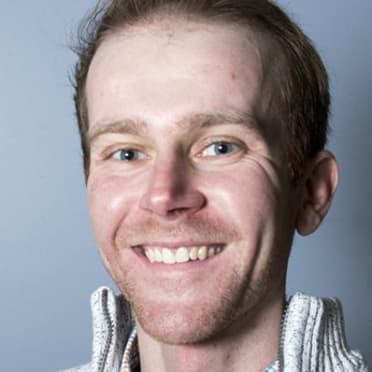Beyond Raleigh, Mariners' catching depth in focus
Switch-hitting slugger leads backstop crop trusted with catching Seattle's power arms
PEORIA, Ariz. -- Luis Castillo said it bluntly and best when asked about the importance of the Mariners’ catchers to the sustained success of a pitching staff that could be among the best in the American League.
“Without a catcher, we can’t pitch,” Castillo said. “Having that relationship with them and having that communication, I think, can really build something.”
Indeed, like many teams, the Mariners put a huge premium on their catchers -- specifically via communication and preparation -- and it is probably no coincidence that they’re led by a former backstop.
“It's changed quite a bit since I was a catcher,” said manager Scott Servais, who played in the Majors for 11 seasons. “Back in the day, you'd just get behind there and catch bullpens and try to figure it out. ... Now, we can give them a lot more information before they ever get back there -- and not just information on what this [pitcher] does, but where we're leading this guy to. And then the catcher can really help us coach that player up.”
Even with Cal Raleigh growing into a household name, the position overall looks slightly different this year -- at least from a depth and usage standpoint.
The everyday plan
If he wasn’t already, Raleigh appears poised for a leap into All-Star territory. He led MLB in homers among catchers each of the past two years, with a combined 57, and ranked second in 2023 with 27 caught-stealings. Moreover, he’s earned the trust and respect of coaches and teammates for his extensive preparation and study.
Though Raleigh has been the starter the past two years, when healthy, the Mariners operated on a more 50/50 or 60/40 split with Tom Murphy, particularly in platoon situations. But in ‘24, it’ll be closer to 70/30 or even 80/20. With that in mind, the Mariners have deliberately started the switch-hitting Raleigh against lefties more this spring.
“Trusting it is the biggest thing,” Raleigh said of hitting right-handed, “because you don’t get as many reps or see as many pitchers from that side. I try to be pretty on top of it ... but obviously, catching comes first, then hitting after that.”
The backup plan
With Murphy gone, Seby Zavala moves to No. 2 on the depth chart after being acquired from Arizona in the Eugenio Suárez trade. Compared to Murphy, Zavala doesn’t have nearly as much experience (176 career games) or production (a slash line of .210/.275/.347 with a .622 OPS), but he also won’t be leaned on as much.
Zavala grades above average in most defensive metrics, including in the 77th percentile or higher blocking and framing, per Statcast, and his primary focus this spring has been getting acclimated with the pitching staff.
“The messaging is always simple,” Zavala said. “There's a direct plan, and it's a very clear plan for everybody, and it makes it easy for me. When they're direct and tell you exactly what their objective is, everybody's on the same page and I can get to know these guys faster.”
The in-a-pinch plan
Mitch Garver has made just one of his 13 starts this spring behind the plate, which is an allusion to what his presence there will look like in the regular season. A primary catcher for most of his seven seasons before shifting to a full-time designated hitter role late last year with Texas, Garver still plans to operate and think like a catcher, but he’ll only be used sparingly.
“At the end of the day, we signed for him to impact our lineup offensively,” Servais said. “But he can catch, so that helps there.”
The Minor League plan
This is where the Mariners were lacking last year, and it became glaring when Murphy suffered a season-ending left thumb sprain in mid-August. Raleigh wound up starting 38 of the Mariners’ final 45 games after Murphy went down, with virtually no safety net other than Triple-A Tacoma’s Brian O’Keefe.
The Mariners are more bullish on Blake Hunt, their No. 25 prospect per MLB Pipeline, who is on the 40-man roster, is considered an above-average defensive catcher and who has power potential, with 12 homers in 67 games last year in the Minors with the Rays. Michael Papierski, a late non-roster invite, has also had a solid spring and remained in camp until the very end.
And waiting in the wings is Harry Ford, their No. 2 prospect and MLB Pipeline’s No. 38 overall. A lot would have to happen for him to reach the Majors this season -- attrition in front of him and proving himself at Double-A Arkansas, where he’ll be promoted to begin the year -- but it’s not out of the question.
